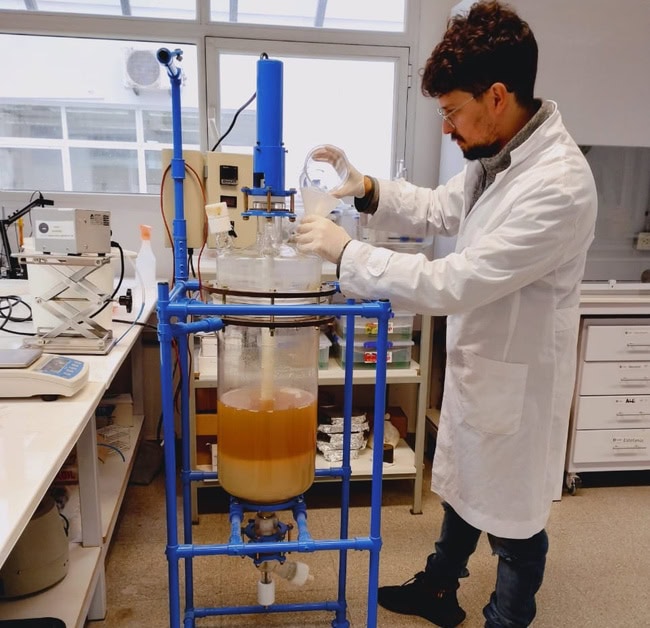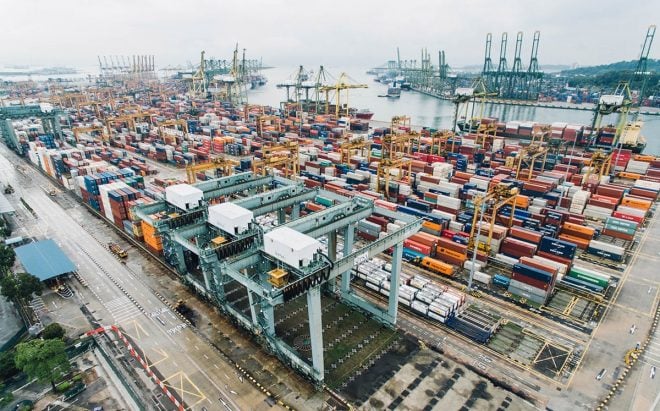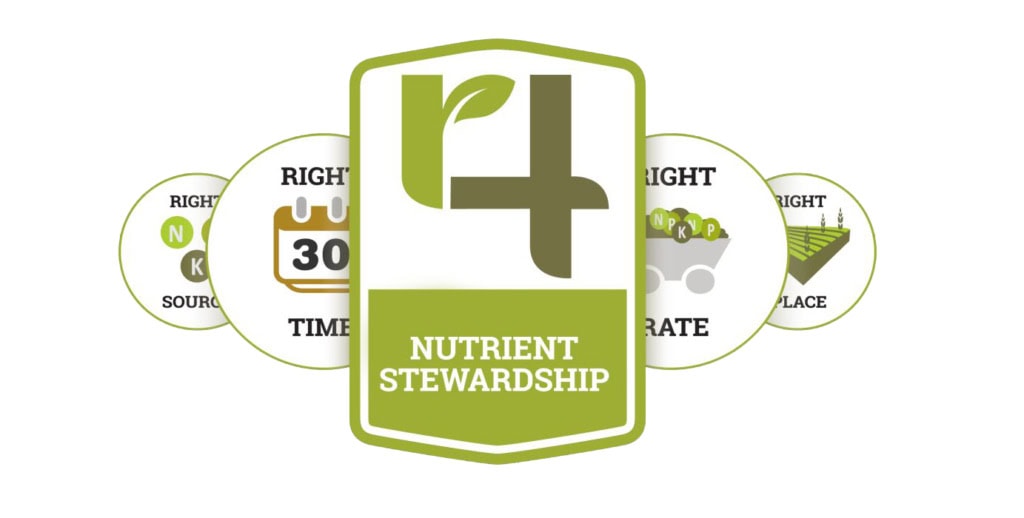UNIBAIO’s Matias Figliozzi: ‘We’re revolutionizing agricultural practices’

Faced with high input costs, as well as mounting demands to reduce their environmental footprint, crop growers are increasingly turning to innovative new technologies to improve their efficiency, increase their yields, and maximize their revenue. But it’s not only drones, autonomous tractors, and precision agriculture tools that have a vital role to play here; new developments in the biotech sphere are also poised to help support the sector and safeguard the viability of farmers’ operations.
In this connection, Fertilizer Daily has had the opportunity to speak to Matias Figliozzi, the co-founder and CEO of UNIBAIO, an exciting Argentine biotech startup. He told us about the emergence of new crop-nutrition paradigms and their implications for the future of farming.
FD: Matias, you’ve been on a mission to reduce the use of chemicals in agriculture. Please tell us about UNIBAIO and how farmers worldwide are benefiting from your technologies.
MF: UNIBAIO is a biotech company dedicated to revolutionizing agricultural practices by improving the formulations of pesticides and fertilizers. Our mission is to reduce the reliance on traditional chemicals and enhance sustainability in agriculture.
We achieve this by introducing proprietary microparticles into the design of agrochemicals. These microparticles serve as a sophisticated delivery system, significantly enhancing the efficiency of agricultural products such as fertilizers, herbicides, and fungicides. Our microparticles are derived from natural sources, creating a unique synergy with plants that facilitates the better absorption of any molecule combined with them.
Our technology allows manufacturers, whether they produce biological or synthetic agrochemicals, to integrate Unibaio particles into their products. This integration results in a remarkable reduction in usage rates, up to 80%. This reduction not only improves the economic viability of farming by enhancing profit margins and competitiveness but also plays a crucial role in mitigating harmful runoff and minimizing the environmental impact of agrochemical use.
Currently, Unibaio is actively engaged in pilot programs with leading fertilizer manufacturers, top-tier chemical companies, and pioneers in biologicals who aim to bring new versions of their products to the farmers. By partnering with these industry leaders, we aim to demonstrate the significant positive impact our technologies can have on agriculture globally.
For farmers all around the world, the adoption of Unibaio’s technologies translates into potential reductions in labour costs associated with the frequency of applying agrochemicals, and it helps in lowering the expenses related to the manipulation of toxic chemicals. Importantly, our approach aids farmers in preserving the fertility of their soil, ensuring sustainable productivity for future generations.

FD: UNIBAIO has offices in Mar del Plata, Argentina, and in New York. Is your primary focus currently on the US and Latin American markets?
MF: Our primary focus is on partnering with chemical companies for agriculture globally. While the headquarters has been relocated to the USA to be closer to major industry players, the company sees its business as global rather than limited to the US or Latin American (LATAM) markets. Despite prioritizing the US in regulatory and go-to-market strategies, the broader vision is to operate on a global scale by collaborating with chemical companies involved in agriculture around the world.
FD: What crops would benefit most from UNIBAIO’s technology? Are there any limitations that farmers should be aware of?
MF: UNIBAIO’s technology proves versatile and advantageous for a broad spectrum of crops, as all plants inherently possess receptors for UNIBAIO’s material, triggering a systemic reaction in the hormone system, which is harnessed as the delivery mechanism. The technology has undergone successful testing across various crops, including raygrass weed, potato crops, soybeans, tomatoes, and others, demonstrating a consistent physiological response. The limitations do not lie in farming practices but rather in potential chemical interactions. Remarkable outcomes encompass a substantial reduction of over 40% in glyphosate usage, 75% in phosphorus, 60% in mancozeb, and 50% in plant extracts utilized as bio-stimulants. Farmers embracing UNIBAIO’s technology need not fear changing their established practices, be it integrating bio particles into fertilizers or pesticides, as there is no necessity to modify current agricultural routines, thereby expediting the adoption curve.
FD: You’ve previously said that UNIBAIO’s unique microparticles work synergistically with biological crop protectants, increasing their efficiency and thus reducing the quantity of agrochemicals that farmers need to apply. Are you collaborating with the producers of those crop protectants, or are you proposing a ready-to-go solution for farmers?
MF: Our approach at UNIBAIO involves collaborating with producers of biological or synthetic crop protectants or nutrition products to enhance their efficiency through the incorporation of our unique natural microparticles. By supercharging these products, we aim to reduce the overall reliance on chemical inputs in agricultural processes. While our technology is not a standalone solution and requires collaboration with established agrochemical companies or start-ups, the ultimate goal is to offer farmers a ready-to-go solution that is more environmentally friendly and cost-efficient, promoting sustainable and efficient agricultural practices.

FD: Have you onboarded the first agricultural producers as your clients? If so, what were the trial results, and are they planning to become the paying clients?
MF: While we are currently in the second year of conducting field trials, we have not yet onboarded agricultural producers as paying clients. However, the demand is promising, with farmers’ associations eagerly awaiting our products to reach the market. For example, coffee bean producers are interested in reducing the reliance on synthetic fungicides to meet the global goals set by major coffee producers in Europe, who aim to cut chemical usage by half by 2030. We are actively seeking collaboration with farmers in the US who are interested in testing our technology as an add-on in the tank mix, as we are considering to accelerate our go-to-market strategy by potentially offering our own branded products in the US.
FD: UNIBAIO attended IndieBio New York’s demo day at the end of January. Were you planning to raise new funding or look for new US clients?
MF: We are raising our Seed round to have everything ready for commercialization. That means farmers using optimized pesticides of fertilizers in less than two years.
FD: Is UNIBAIO intending to expand its product line by developing new products or formulations to complement its core product, or is it prioritizing the exploration of new applications for its existing microparticles?
MF: UNIBAIO’s current focus is on identifying the optimal applications for its existing microparticles. The plan is to prioritize the exploration of various uses for the current version and subsequently work towards the development of new versions or formulations based on the gained insights and findings to have one that works with each kind of products that farmers use.
FD: To conclude our interview I would like to ask you a personal question, if you don’t mind. What drives your UNIBAIO journey and motivates you to continue your research?
MF: The driving force behind UNIBAIO’s journey is our co-founder and CTO, Dr. Claudia Casalongue. She was born in a small town at the heart of the Pampa region in Argentina, the primary agricultural hub. Her connection to agriculture runs deep, as her father was involved in flying crop dusters. Growing up in this environment allowed her to comprehend both the mindset of farmers and the adverse effects of the misuse of agrochemicals. This understanding became the catalyst for her focus on studying how plants react to stress over more than three decades and exploring how nanotechnology can be leveraged to create new, sustainable, and cost-efficient solutions for agriculture. In my case, as an economist, I find the challenge fascinating and stimulating.
Our overarching goal at UNIBAIO is to shift agriculture away from chemicals that degrade soils and human health, directing it towards biological alternatives capable of sustainably feeding billions of people without causing harmful side effects. Our biotechnology not only reduces chemical use in current practices but also paves the way for a new generation of biologicals that outperform their synthetic counterparts, improving yields and enhancing crop resilience.



